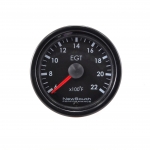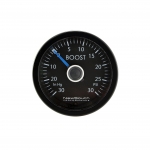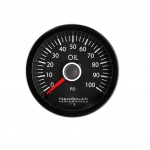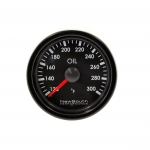WHY DO I NEED GAUGES?
IT’S SIMPLE – Gauges help you keep your engine running in top condition and can help prevent problems from happening. In other words…to Protect Your Performance!
You’ve put in the time, you’ve put in the money. Your ride just about perfect and you want to keep it that way.
We all know some of the problems engines can have. Too much boost can grenade it. Not enough oil pressure can fry the bearings. Too lean and it can ruin an engine and too rich can make it lose power. Your engine could be too cold or you could be pushing too hard.
Gauges let you keep an eye on your engine’s condition, helping find small problems before they become big ones. When you want the best performance for your engine, they’re an extremely useful tool.
Safety and performance are what gauges are all about.
WHAT DOES EACH GAUGE DO?
Let’s go through them one-by-one to see how they can be used.
Let’s go through them one-by-one to see how they can be used.
A boost gauge reads how much boost pressure the turbocharger or supercharger is making so that they can be set at a desired and safe level. Running too much boost could cause massive damage your engine, leading to piston failure. This gauge can help you diagnose boost leaks which can be just as troublesome and harmful as overboosting.
Oil and correct oil pressure is the lifeblood of any engine and is doubly important for turbocharged or supercharged engines. Low oil pressure can cause a host of problems including a seized turbo and a seized engine. High oil pressure can indicate a broken oil pressure relief valve or a blocked oil passage that could be starving the rest of the engine of lubrication. Low oil pressure could mean a host of issues including a broken oil pressure relief valve, dirty oil pump screen, bad oil pump, or worn bearings.
Oil temperature is one of the most important things to know, especially for turbocharged cars. You can cause damage by racing or running your engine hard before is it warmed up. High oil temperature can be caused by stressing or loading the engine too hard. Engine oil can lose its lubricating properties and cook if it gets too hot. This can cause coking of the oil inside the turbocharger and lead to an expensive failure.
 Exhaust Gas Temperature (EGT) Gauge
Exhaust Gas Temperature (EGT) Gauge
Also called a pyrometer, the EGT gauge is used to monitor the exhaust gas temperature of an engine and is particularly useful for turbocharged engines. Running too hot for extended periods of time can lead to engine failure.
When used for tuning an engine, the EGT gauge can show if you are running rich, hot, lean or cold. Running lean can mean that you need to adjust your fuel pressure or timing. Running cold can mean unburned fuel possibly indicating an ignition or timing problem.
A voltmeter gives you a measure of your car’s electrical system. While driving, your voltmeter should read between 13-14V. A reading below that can mean a bad, loose, or undersized alternator or a bad cell in your battery. Below 12V means you are not charging and you have got a major electrical failure. Anything above 14V can harm your electronics as they are designed to run at no more than 15V.




